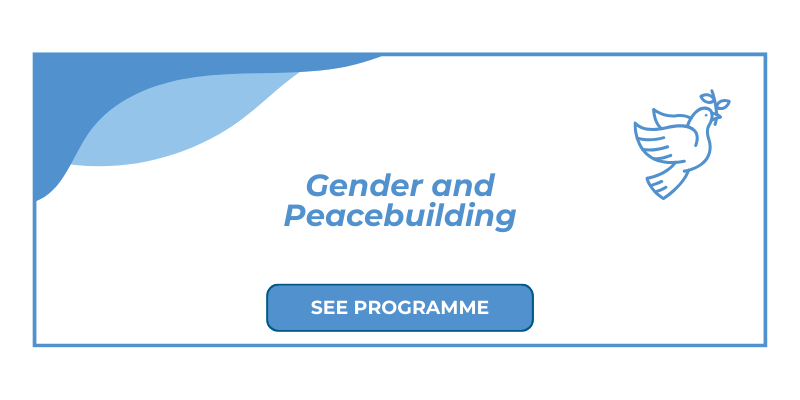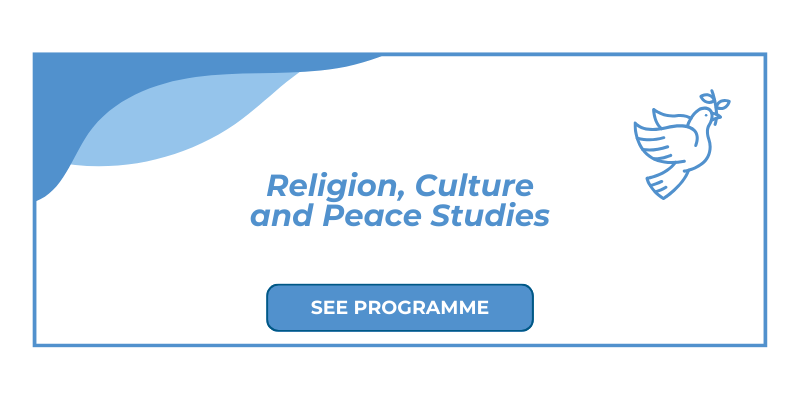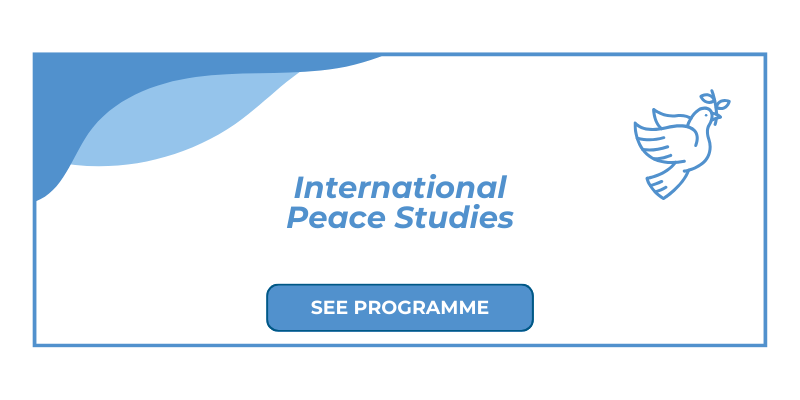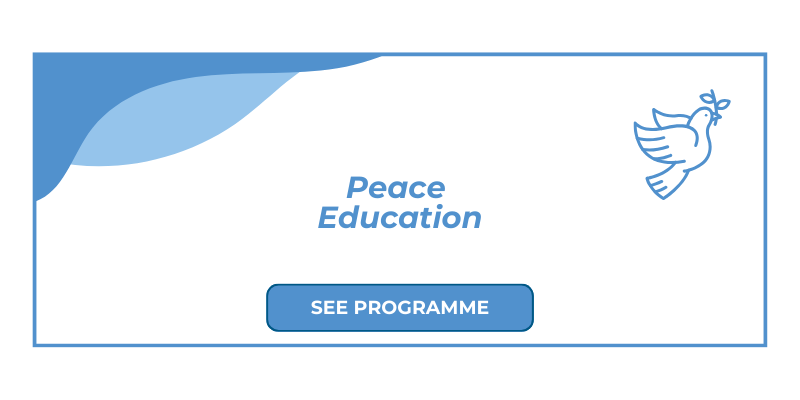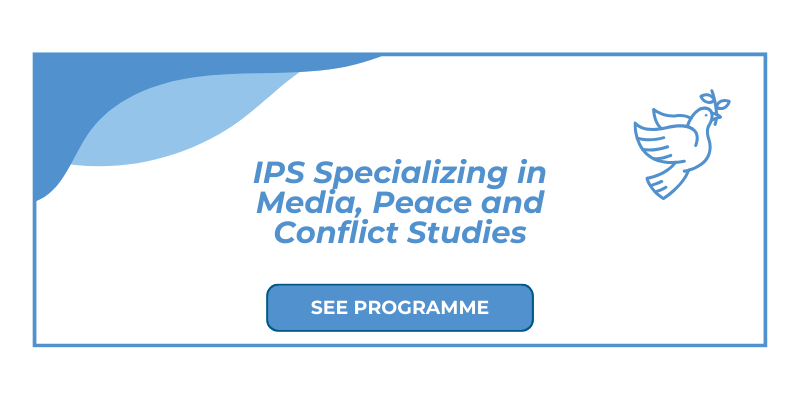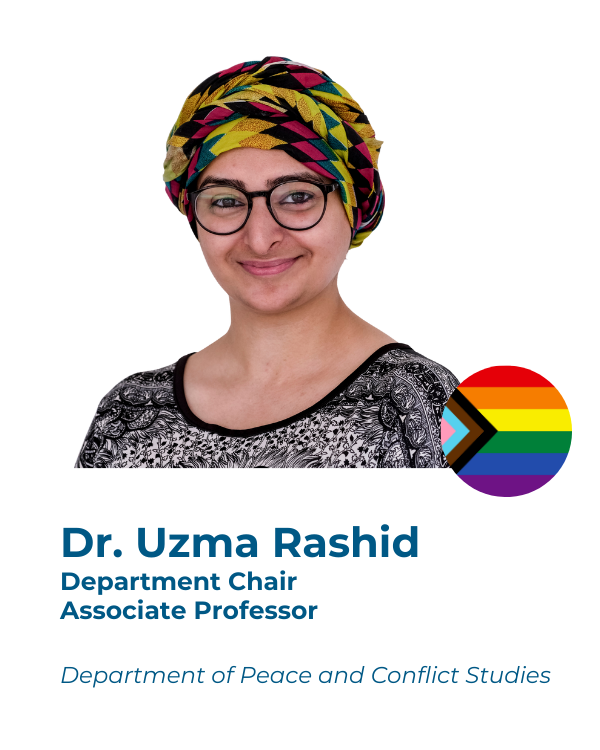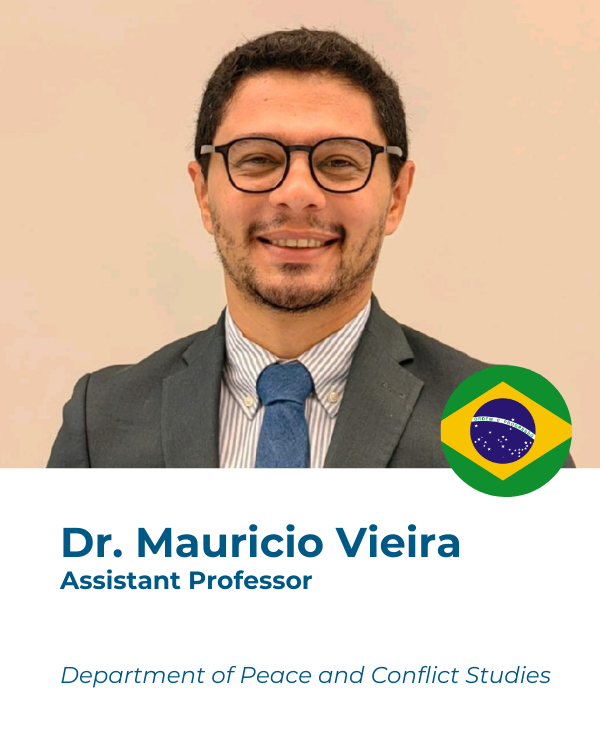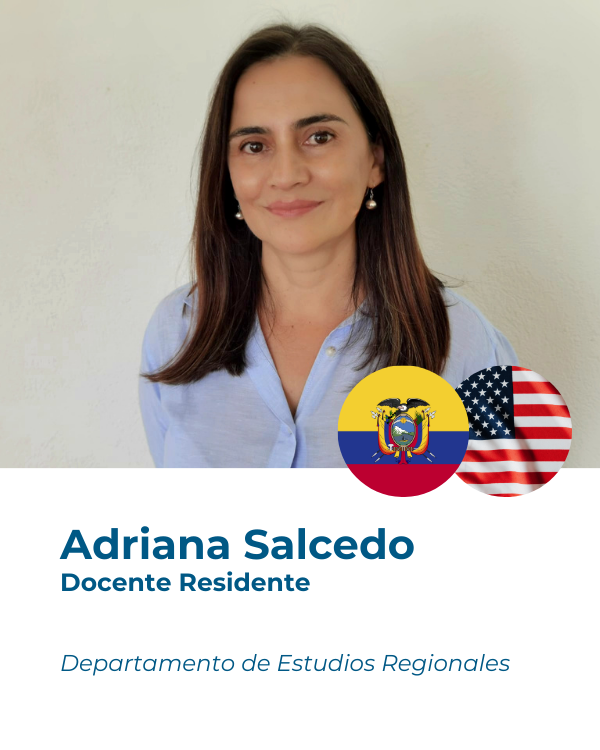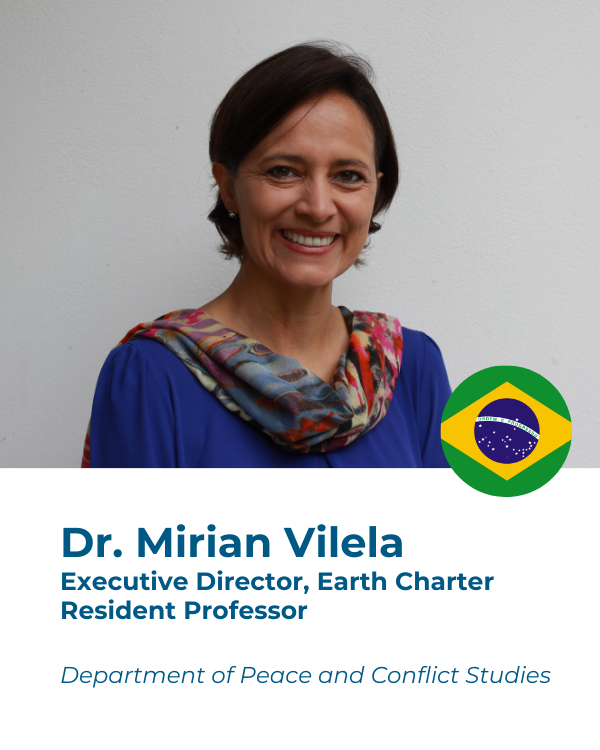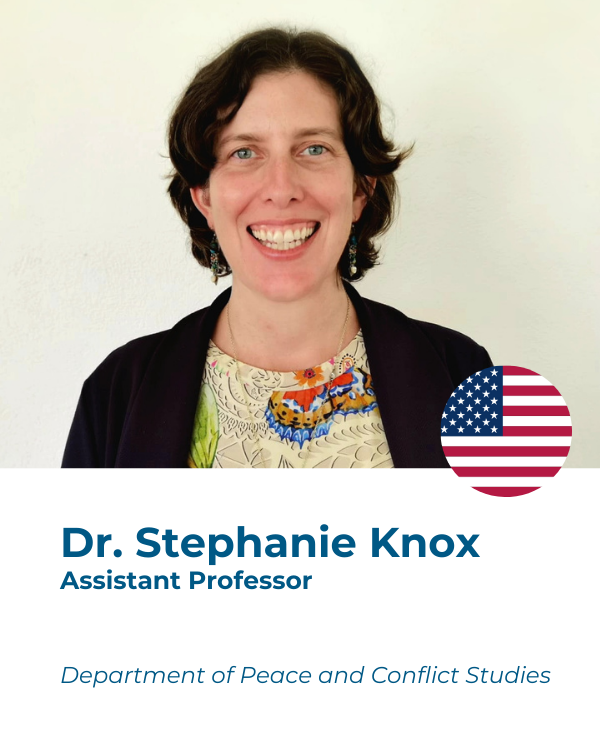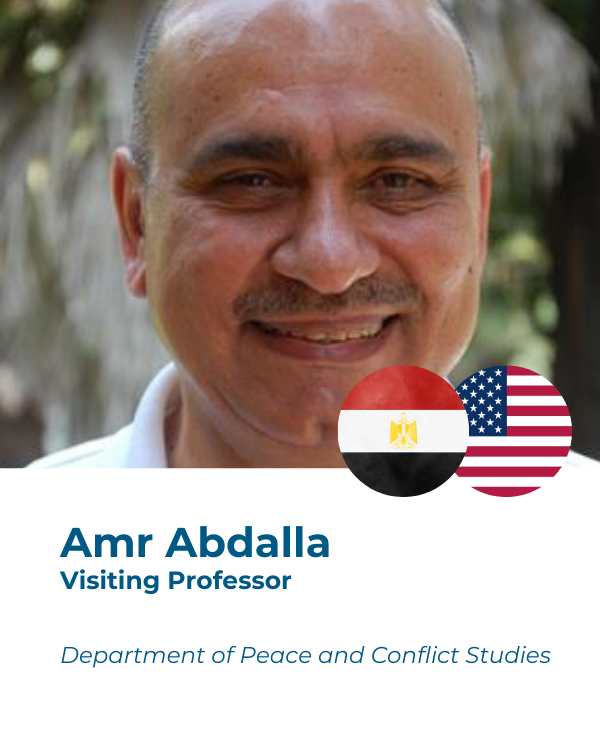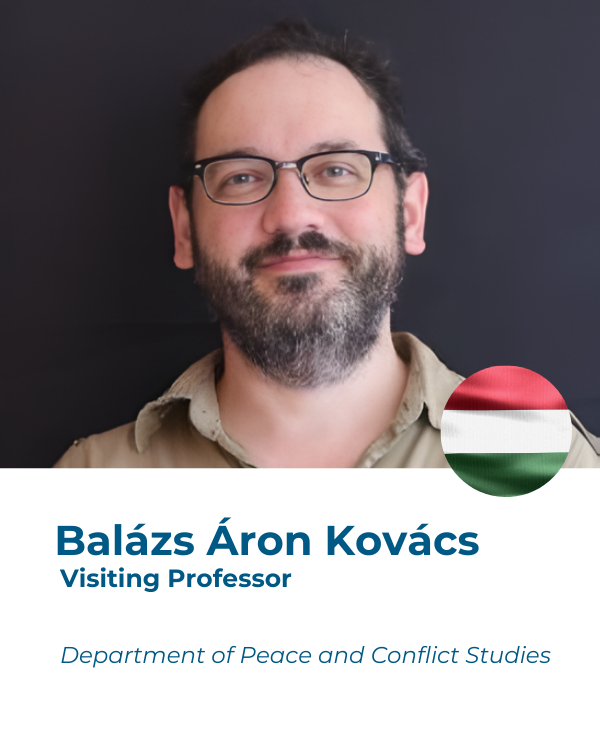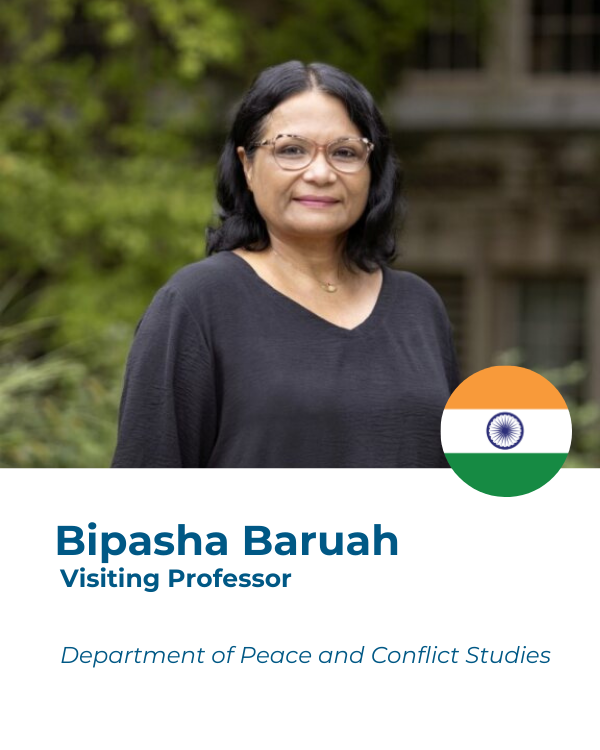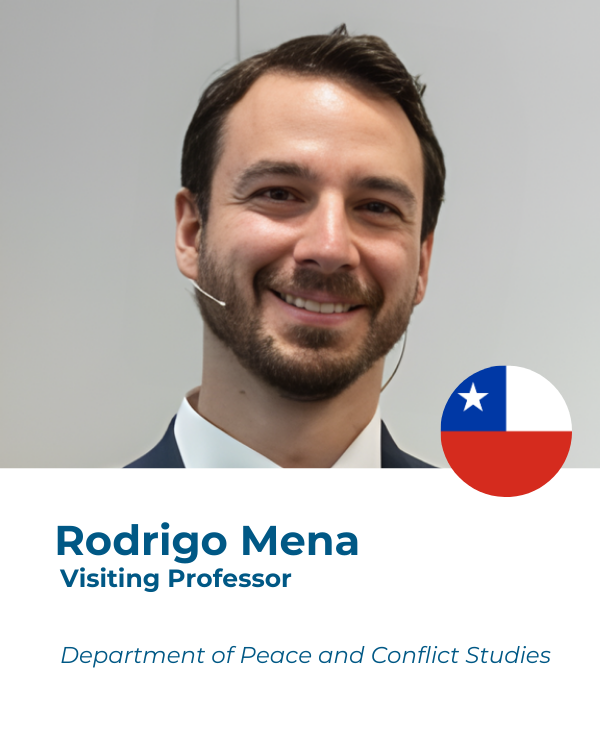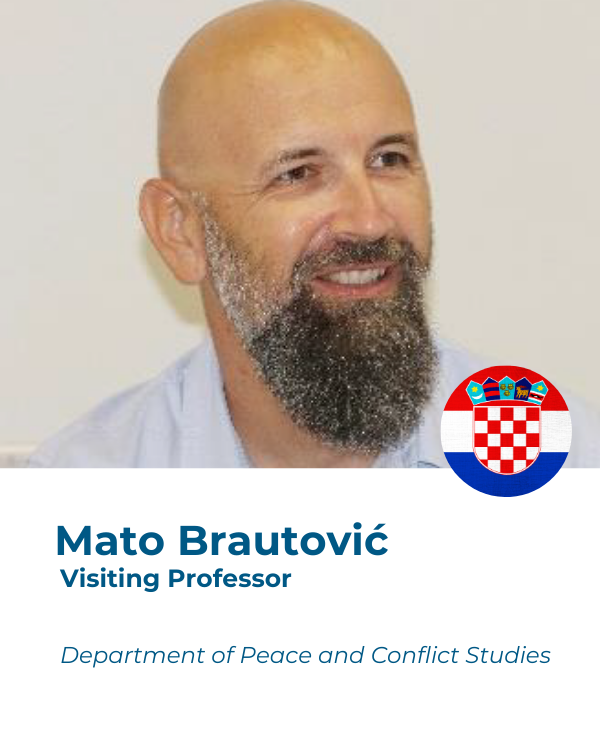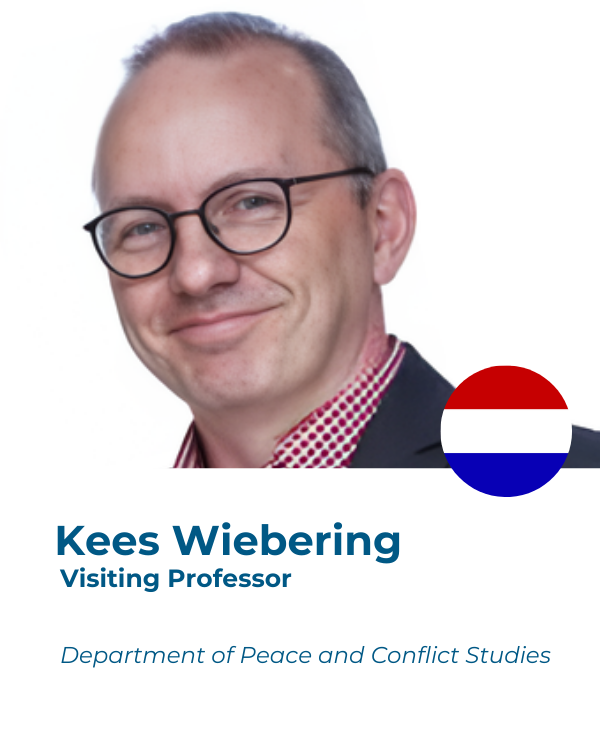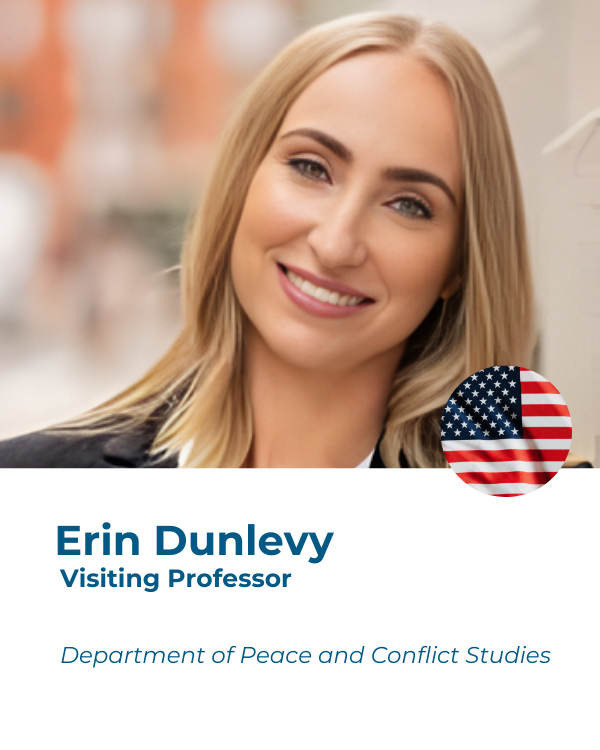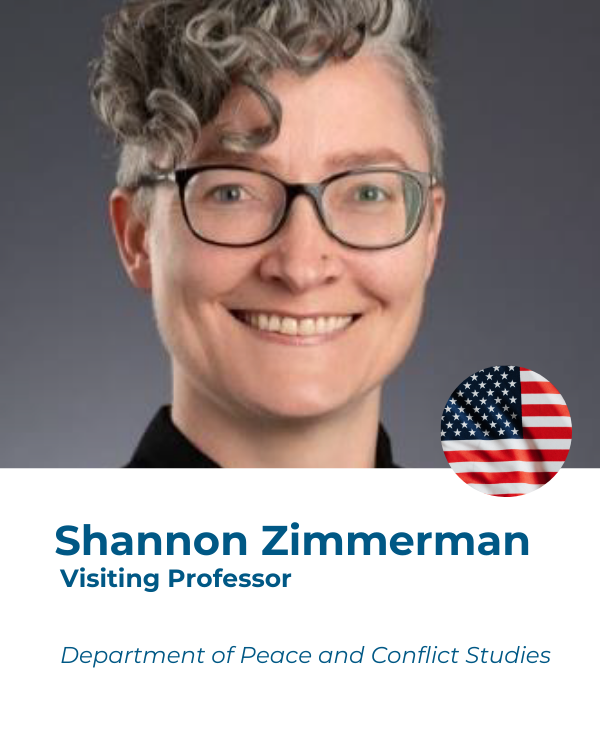Department of Peace and Conflict Studies
The Department of Peace and Conflict Studies (DPCS) at the University for Peace is an integrated grouping of programmes that affiliate, interrelate and synergize around core themes and perspectives in conflict analysis and the challenges to peacebuilding. The programmes share a common goal of providing a critical understanding and analysis of root causes of conflicts and violence in diverse local, national, global and societal contexts, while specifically focusing on various dimensions, strategies, sectors, institutions and levels of conflict resolution and transformation to build a peaceful world.
Over the past several years, Alumni have drawn upon the knowledge, skills, vision and commitment gained from these programmes to serve effectively and creatively in a wide range of peacebuilding-related roles in their societies and in the wider international community.
Certificate Programmes Available!
Along with the M.A. programmes you see below, we also offer Certificate Programmes in both face-to-face and online formats. Click on the corresponding programme below to find out more.



